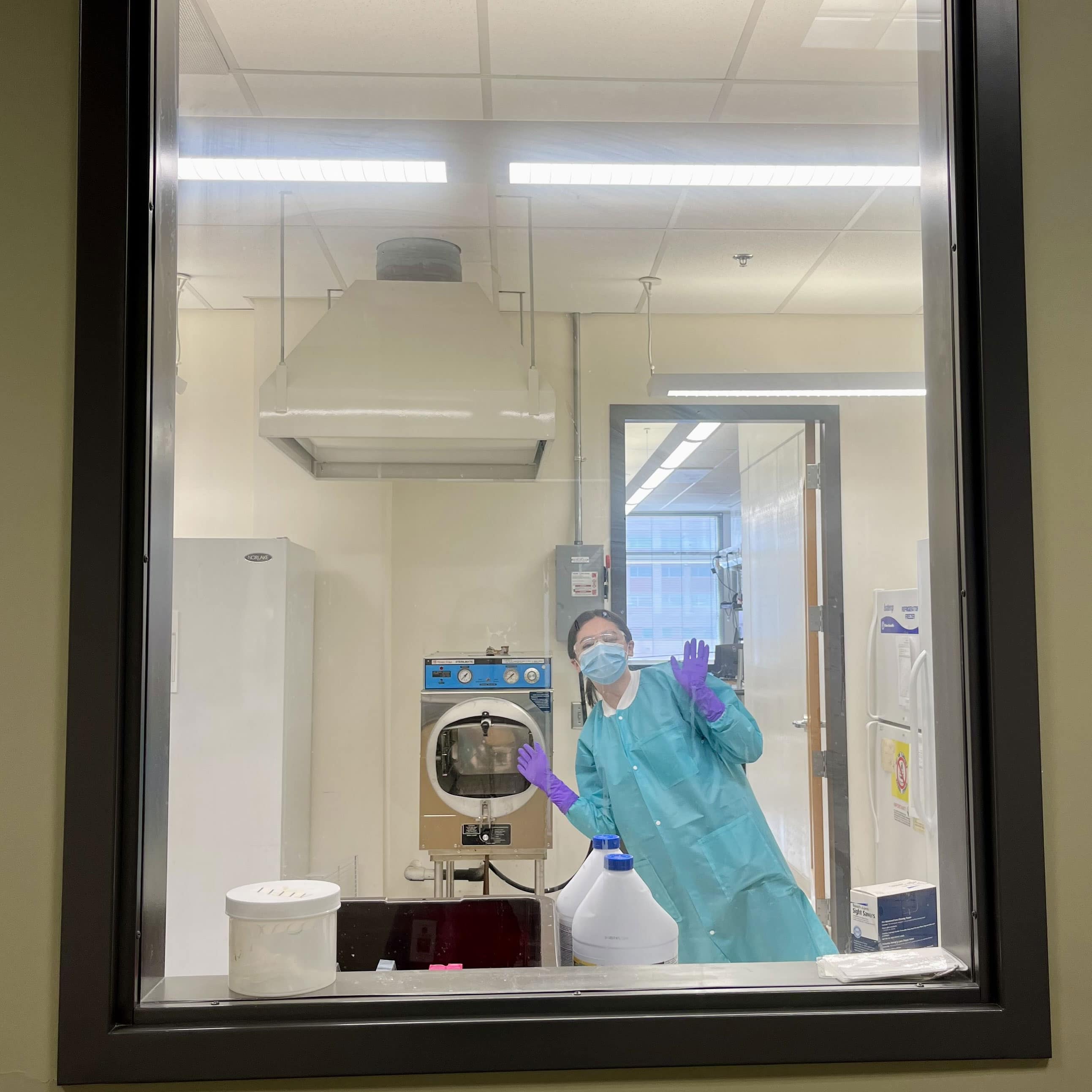

Gabby Reece Is on the Case Thanks to a Forensic Biology Degree

Putting her recent degree in Forensic Biology to work, Gabby Reece is now a scientist interpreting DNA evidence in a crime lab.
“I had never seen a dead body. It was a decomposing body too, so it was quite the introduction," recalls Gabby Reece ('23), reflecting on her internship. Moving from a homeschooled high schooler captivated by an online forensic science class to a scientist in a crime lab, Gabby’s commitment to unlocking the mysteries of DNA has been unwavering.
Gabby's fascination with science began through a unique homeschooling program that offered online courses complete with hands-on experiments. "They sent me a box of forensic-related stuff, basically a kit for labs that I could do at home," she explains. This practical, immersive approach sparked her enduring interest in the field.
Forensics at Embry-Riddle
Initially, Gabby assumed Embry-Riddle Aeronautical University was focused solely on aviation, but a visit to the Prescott Campus changed her mind. The STEM Education Center, with its advanced laboratories and workshops dedicated to project-based learning, immediately felt like the right place. “I thought, this is my space. This is where I need to be.”
She earned her Bachelor of Science in Forensic Biology in 2023. Long before graduation, she delved into research on trace evidence, studying how residues from cosmetics could be identified and analyzed to link individuals to crime scenes. This project showcased the practical applications of her studies and demonstrated how even commonplace substances could serve as critical evidence in criminal investigations. The research also underscored the interdisciplinary nature of modern forensic science, blending biology, chemistry and investigative techniques.
During her undergraduate years, Gabby gained hands-on experience through a three-month internship at the Yavapai Medical Examiner’s office. "I got introduced to some cool forensic stuff. I did fingerprinting a lot there, learning about just the different parts of the process," she says. This practical exposure reinforced her desire to apply scientific principles to real-world challenges and solidified her dedication to serving the community through forensic science.
Becoming a Forensic Scientist
Now, as a forensic scientist in training at the Phoenix Crime Lab, Gabby plays a crucial role in both lab work and data interpretation. She provides a detailed explanation of the forensic DNA process: "In forensic DNA, we target regions known as short tandem repeats or STRs. These regions can vary between individuals and are what we use to generate STR profiles."
She goes on to describe the meticulous steps involved in creating these profiles, from extraction and quantitation to amplification and typing. "Once we have all our copies, we need a way to detect and visualize them. This is the goal of typing where we produce that STR profile. The profile looks like various peaks on a graph and then I interpret that profile," she explains. Among all her responsibilities, Gabby finds interpretation particularly rewarding, noting, "It’s one of my favorite parts."
As she delves deeper into her role, Gabby is particularly excited about the potential of emerging technologies like next-generation sequencing. "It has sparked a lot of interest in the forensic community," she notes. This technology, which rapidly reads both DNA and RNA sequences, promises to revolutionize the field by providing detailed genetic information quickly and efficiently, potentially leading to advancements in both forensic science and medical diagnostics.
Gabby emphasizes the importance of adaptability and continual learning in a field that evolves rapidly. "You always have to be ready to learn something new because the forensic community is always changing. We're always finding ways to advance and improve," she advises.
Looking forward, Gabby is intrigued by the idea of contributing to the developmental side of forensic technology. "Working with companies that create the software or instrumentation of kits that we use would be an interesting challenge," she muses, hinting at her desire to influence the tools and techniques that will shape the future of forensic science.
As she approaches the completion of her first year of intensive on-the-job training, Gabby Reece is focused on mastering the finer points of serology testing, meeting stringent quality assurance standards and preparing detailed reports. Soon, she will be ready to take on additional responsibilities, including visiting crime scenes and providing expert testimony.


